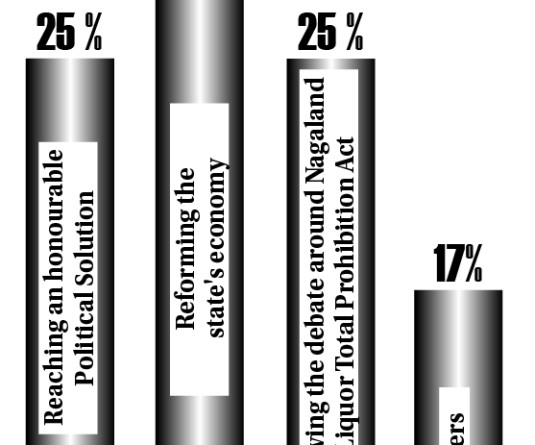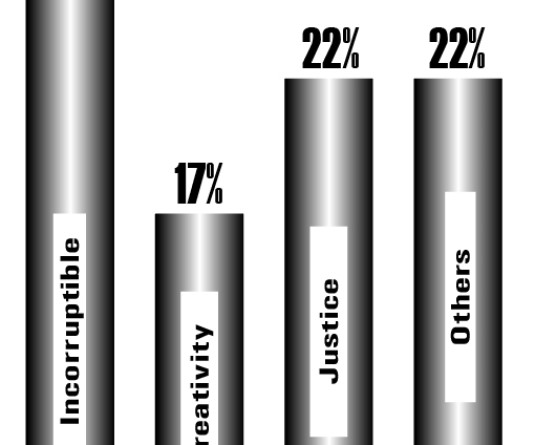
Those who voted yes had this to say:
• Yes, it does but not fully.
• Where else in India are natural resources owned by the people/communities?
Those who voted no had this to say:
• It is simply a legal provision protecting certain rights and has nothing to do with aspirations.
• No, not at all. The Naga aspirations are not reflected in Article 371(a). A close study of the Article will tell you that the rights given in 371(a) is nothing special. All those rights are already given under the Fundamental Rights of the Indian Constitution. The only different aspect is that the Articles 371(a) applies to Nagaland, otherwise rest is the same. The fact there is a peace process says that 371(a) does not reflect the Naga rights.
• Anything in the Indian constitution doesn't matter to us. How can a foreign country enact a law to protect us? See the problem in Iraq? The same thing. India should leave us alone... we are two entities that can never join.
• Not at all. Article 371 (a) was introduced by India to fool the world that India cares and respects the Nagas, but this is not true. Nagas have never accepted Article 371 (a) because it is just a whitewash and nothing more.
• The provisions under Article 371 A is already guaranteed under the Fundamental Rights, and has nothing special under it. Nagas in the 1960s were hoodwinked by the Indian Government and were made to believe that there was something good for the Nagas, but all that it did was create confusion and division. The Naga rights are not reflected under Article 371 A.
• We want complete freedom. Not under the protection of the Indians. We know how to prosper and protect ourselves.
• The Naga rights cannot ever be satisfied and reflected in the Indian Constitution. The Indian Constitution is silent when it comes to the political rights of people like the Nagas. It was the attempt of the Indian govt to try and fool the Nagas through Article 3719(a), but fortunately the Naga leaders were able to see through it. For the Naga aspiration to be fulfilled, the Indian constitution must recognize the rights to sovereignty by the Nagas and other nationalities.
• Political right is more important than a mere cultural, customary and land rights to Nagas provided in Article 371(A).
• This is not mean to this particular issue, and is not much clear and related to the rights of the Nagas.
• Whatever rights guaranteed to the Nagas under the Indian constitution cannot reflect the aspiration of the Nagas.






